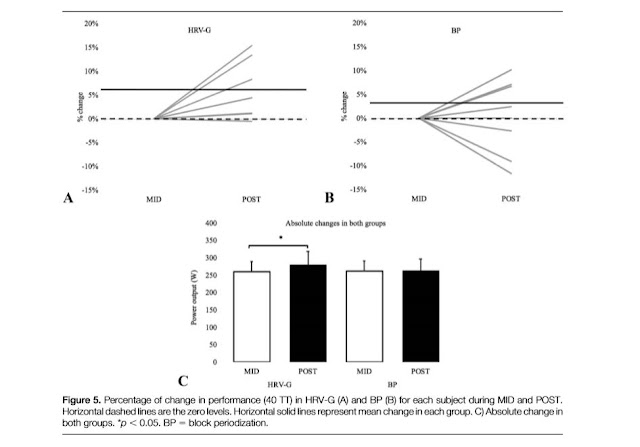Don't believe everything that you read.

Leave it to Twitter to get me riled up. A tweet caught my attention a few days ago. It read: "Greater improvements in cycling performance parameters following HRV-guided vs. block training." I was intrigued, so I read the abstract . I didn't have access to the peer review journal at the time, but I could see in the abstract, "Between-group fitness and performance were similar after the study." So I called out the original "tweeter," saying there was no statistically significant difference between the two groups. Claiming one is superior, misrepresents the study's findings. By this point I noticed the individual is a professor and researcher and maintains a blog devoted to heart rate variability (HRV) research - which surprised me. If he's a professor, surely he understands statistics - I couldn't help but think he was misrepresenting the findings to support his bias in favor of HRV-guided training... After I pointed out...